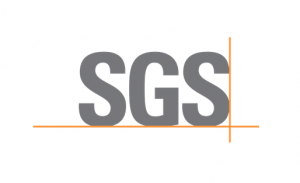
As the United Kingdom charts its course post-Brexit, businesses engaged in the import and export of manufactured goods find themselves at the forefront of a new era. The landscape has shifted, regulations have transformed, and opportunities await those agile enough to adapt. In this dynamic environment, companies must navigate challenges and capitalize on emerging prospects to ensure the seamless flow of goods across borders.
New regulatory framework
The post-Brexit era has ushered in a revised regulatory framework, requiring businesses to adhere to a new set of rules governing the import and export of manufactured goods. Navigating customs procedures, tariffs, and compliance standards demands a heightened level of diligence and familiarity with the intricacies of the updated regulations.
Customs declarations and documentation
One of the most significant changes is the requirement for customs declarations and additional documentation. Businesses involved in the manufacturing sector must ensure that they have the necessary paperwork to facilitate the smooth passage of goods through customs. Delays caused by incomplete or inaccurate documentation can have profound implications on supply chain efficiency and customer satisfaction.
Tariffs and trade agreements
The evolution of the UK's trading relationship with the European Union (EU) and other nations has introduced changes to tariff structures. Understanding the implications of these tariffs and capitalizing on any new trade agreements is crucial for businesses seeking to optimize their cost structures and maintain competitiveness in the global marketplace.
Supply chain resilience
The redefined relationship between the UK and the EU has prompted businesses to reevaluate and fortify their supply chain strategies. Emphasis on supply chain resilience, diversification, and contingency planning has become paramount. Companies are exploring alternative sourcing options and distribution channels to mitigate risks associated with potential disruptions.
Technology as a catalyst
Amid challenges, technology emerges as a powerful catalyst for efficiency. Businesses are increasingly turning to digital solutions to streamline customs processes, enhance visibility across the supply chain, and ensure compliance. Leveraging technology not only facilitates smoother operations but also provides a competitive edge in the rapidly evolving landscape.
Strategic partnerships and expert guidance
Given the complexity of post-Brexit trade dynamics, forming strategic partnerships and seeking expert guidance is becoming a hallmark of successful businesses. Collaborating with logistics providers, customs brokers, and consultants with a deep understanding of the new regulatory environment can offer invaluable support in navigating challenges and maximizing opportunities.
As the UK forges its path forward, businesses engaged in the import and export of manufactured goods stand at the crossroads of change. Navigating this terrain requires adaptability, a keen understanding of regulatory nuances, and a commitment to leveraging technology and strategic partnerships for success in the post-Brexit landscapes.
How can SGS help?
With a global network, including customs operations across Europe and beyond, SGS is already working with hundreds of businesses within the sector. We are helping thousands of companies with customs services, including software, brokerage and transit, to facilitate trade throughout Europe and beyond.
As a neutral partner, not involved in transportation directly, SGS is focused on ensuring our clients’ goods move seamlessly through border locations. To help ease the pressures of customs compliance, SGS also offers a one-stop-shop of international trade solutions, supported with in-house software that can help make your customs declarations simpler and provide visibility and control.





